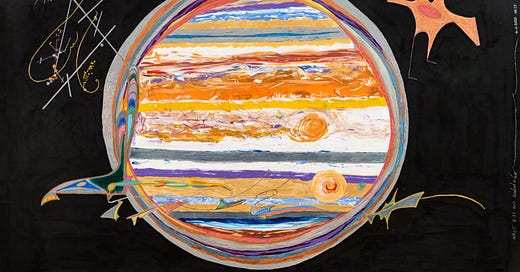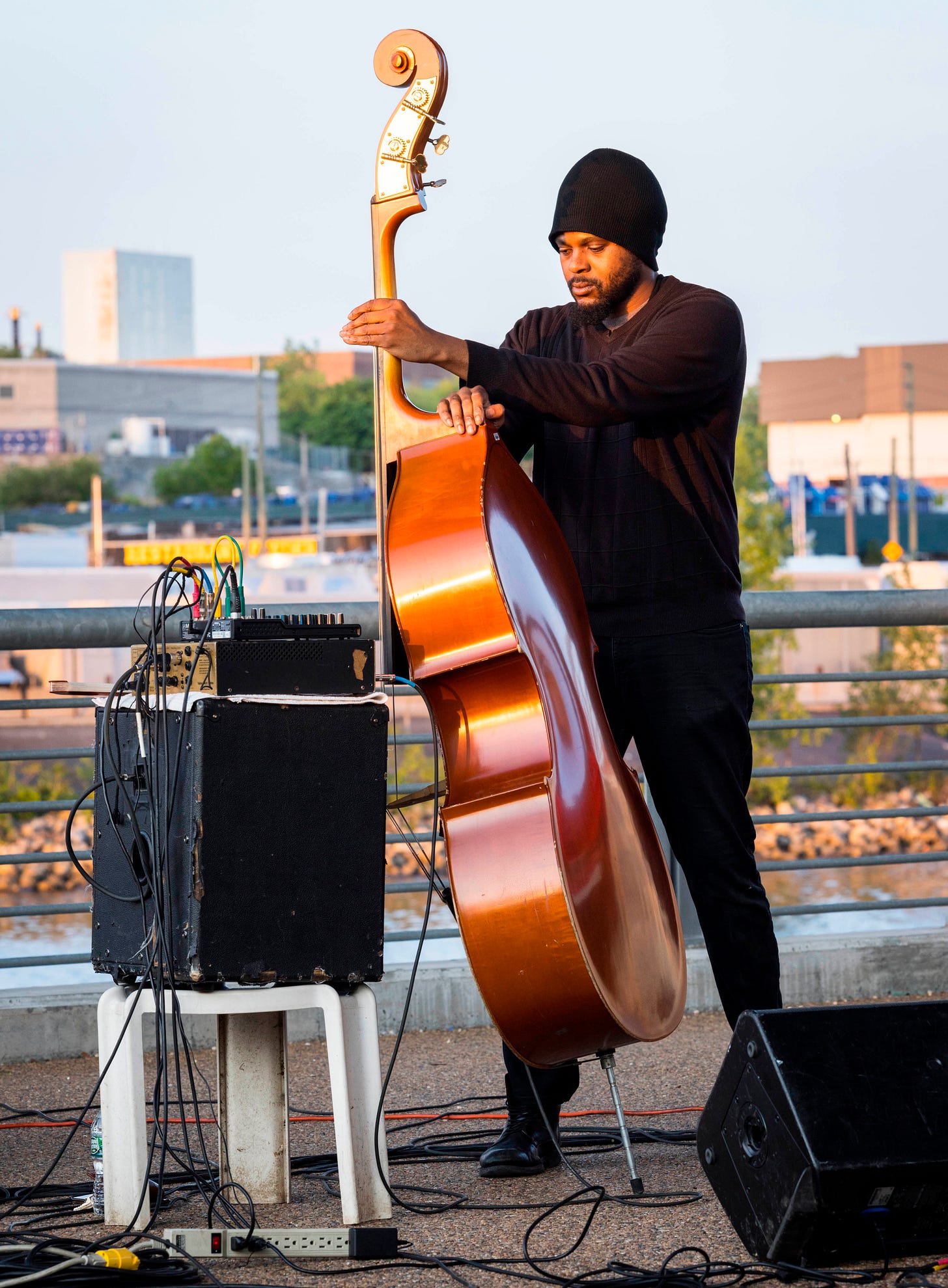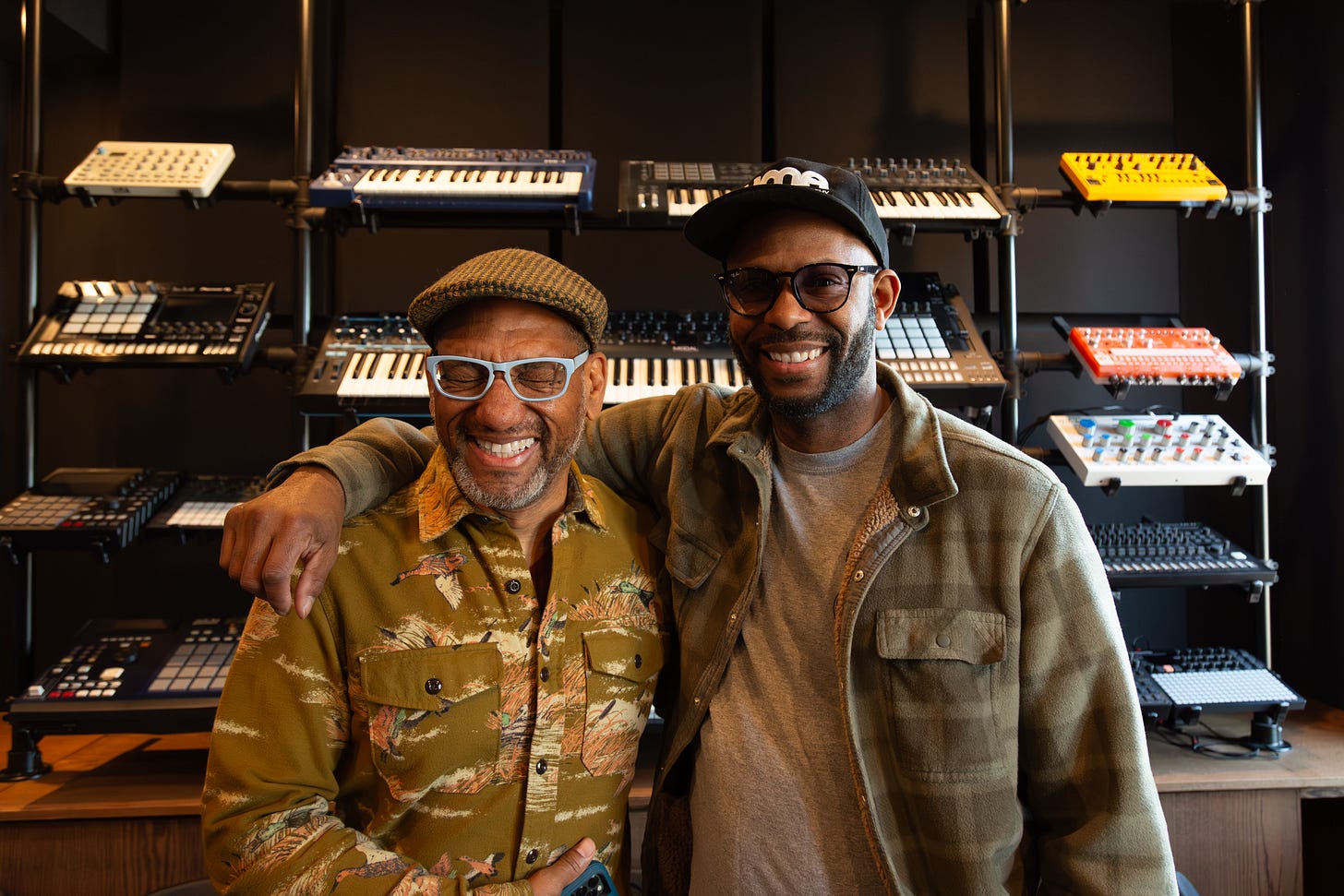Dada Writing: On Luke Stewart, Blacktronika and Underground Music Academy
Slightly deeper contextual dive into a couple of pieces recently published in BOMB Magazine and Art Forum, which try to bring the Dada Strain philosophy into outside work
Luke Stewart by Piotr Orlov (BOMB Magazine 8/23/2024) // Teaching Techno (Art Forum, 9/4/2024)
As the central syncretic principle behind Dada Strain (Rhythm Improvisation Community) has emerged into worldview, I’ve tried to bring this idea into my freelance writing/producing work outside of the project. It’s not always applicable. But recognition of how the interlocking elements of Rhythm Improvisation Community affect society—the roles they’ve always played, the results they help achieve when intentionally centered in future development—is important enough to me that I now build pitches around them.
Over the last month, I’ve published two pieces of personal significance, both of which I believe illustrate a Dada Strain POV in the wider world. I make lots of non-Dada work, rarely promoting it in the newsletter. (For those interested, it’s often on Dada Strain’s InstaGram and on Substack Notes.) But when that outside work is informed by the newsletter’s core elements, it feels important to add them to your inbox, bringing context to the weekly shows and New York stories. I’m gonna call these posts Dada Writing because they are directly related!
First off is a long (but tightly edited) interview I did with the mighty Luke Stewart for BOMB Magazine. Regular readers are undoubtedly familiar with Luke’s name. He’s a bassist and community musicker whom I’d been lauding for his role as a co-founder of the mighty Irreversible Entanglements, covered as a member of the great post-hardcore duo Blacks’ Myths, and constantly watched gigging with everyone from James Brandon Lewis’ Unruly band, to the great theatrical ensemble Heroes Are Gang Leaders, to his live and recorded projects with such great NYC contemporaries as Amirtha Kidambi, Leila Bordreuil and the late jaimie branch, among many many. In January of 2020, Luke and I did a long interview for AFROPUNK, my then-employer, that gave a bit of his back-story (and once included a great noisy hip-hop mix that’s since been lost to the content black hole). That conversation began an ongoing dialogue between Luke and I about music’s roles in society, a dialogue that continues to this day and has greatly informed my thinking about the interplay of rhythm, improvisation and community.
When BOMB reached out and asked me to do an interview with Luke around the release of a great new album by his Silt Trio, Unknown Rivers (Pi), I jumped at the chance to put the ideas of our exchange into the public record. Because, while Luke’s star is publicly ascendant, rarely does coverage of his work and recordings extend into an exploration of his philosophical worldview and the community work he does. Which is massive… Ask anyone who knows him: the man’s depth is driven by empathetic and visioneering energy, which also feeds the music in a way that makes many “jazz” institutionalists less than comfortable. This, then, was an opportunity to let Luke Stewart present his ideas as unfiltered as possible.
Here’s one choice quote of many:
“Improvisation is also a reflection of how we think about art and ownership. We live in a world of ownership—separation based on ownership, valuation and goodness based on ownership and possession, rather than based on expression and abundance of ideas. We want to say that our ideas are ours, because we believe that ideas are limited. We don’t trust ourselves to know that ideas are abundant and unlimited, which improvisation is an expression of. It’s a practice of unlimited ideas. Improvisation is, at its root, questioning this idea of ownership, really busting open the experience of playing a piece of music, the purpose of bringing people together to express an idea or a feeling or an emotion, which is greater than just a single composition. It’s not the composer’s, at that point. It’s a submission to a greater thing.”
More at BOMBmagazine.org.
The other story is one I’d been working on for over a year, pitching it around to no avail before the editors at Artforum took a chance. “Teaching Techno,” on “King Britt’s ‘Blacktronika,’ Waajeed’s Underground Music Academy, and the future of Black electronic music pedagogy,” explores how the Great Black Music continuum carries on centering community and history, and the similar-but-different ways that two of its current great teachers, King Britt teaching at a huge institution and Waajeed mentoring in a local organization, are doing the work.
The piece includes short profiles of the two dance-music producers whose long careers have always been grounded in specific place s(King in Philly, Waajeed in Detroit) while always searching for the universal. It sketches how King Britt’s “Blacktronika” project works at UC-San Diego (and, increasingly, around the world), and the seedlings of what takes place at UMA, a Detroit community space that Waajeed has cultivated over the past few years, with help from from folks like UR’s Mike Banks and UMA’s education director, Taylor Simone. I also pull in the “DJ scholarship” work of the great Lynée Denise, the first academic to bring ideas cultivated at the club and behind the decks into the global sociology classroom.
Here’s a taste:
Britt and Waajeed are longtime friends and collaborators, and the lecture, one of the monthly workshops produced by UMA at its still-being-renovated building on East Grand Boulevard, publicly celebrated the men’s primary shared pursuit at present: encouraging the next generation of electronic and dance music practitioners and listeners to continue its sociopolitical trajectory and legacy of Black community–building aspects. In 2024, this project is fraught with societal landmines. Given academia’s track record of stripping social principles from the teaching of Black musical traditions, and the pop culture industry’s historical dissociation of club sounds from Blackness (Beyoncé notwithstanding), it’s more common to see organizations profiting from values-driven African diasporic forms rather than communicating their stories.
With “Blacktronika” and UMA, Britt and Waajeed are, in differing ways, displaying how Black music traditions are a guiding light for global sounds and local aspirations—not simply in the popular imagination or on dance floors, but as individualized self-realization. In Britt’s words, this music “threads together technology” with “innovation, the necessity for survival, for Black Joy, and bringing people together, while also [acting as] a political response to what’s happening.”
More at ArtForum.com
Both pieces were the products of great long interviews with all the subjects, and a lot of great stuff was left on the editing floor. Look for director’s cuts in the future.





